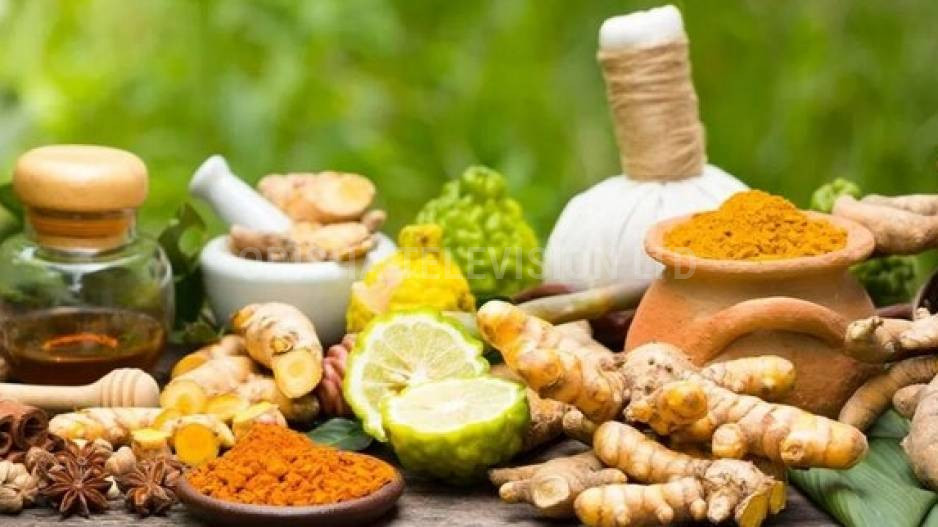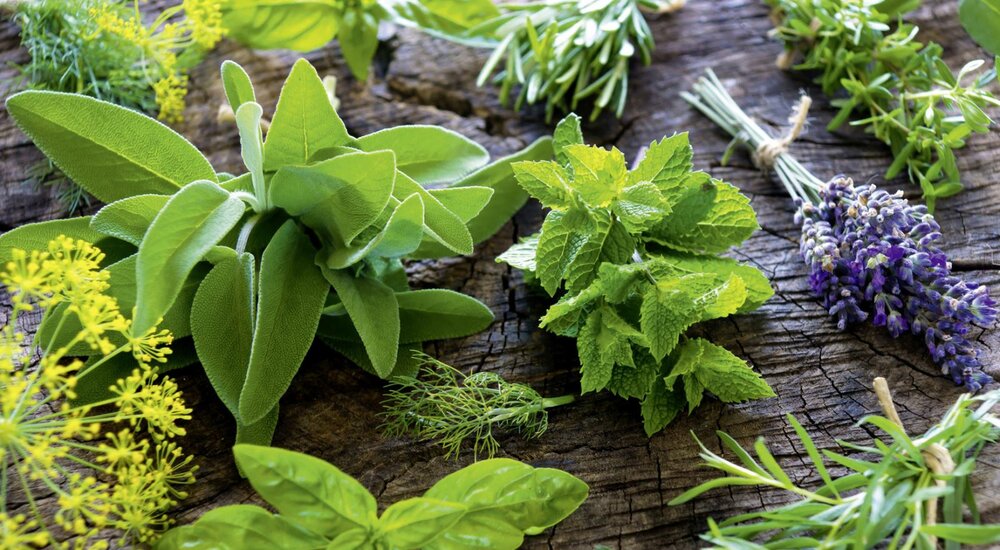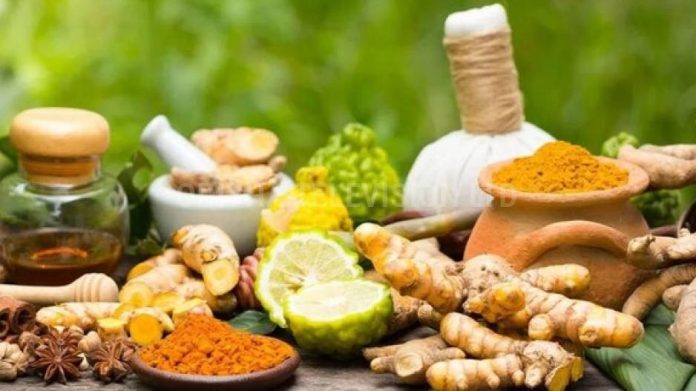Herbal medicine has been used for centuries by various cultures across the world. It involves the use of plants and plant extracts to treat and prevent illnesses. With the rise in popularity of natural and holistic remedies, herbal medicine has gained even more traction in recent years. From teas and tinctures to supplements and oils, there is a wide range of ways in which herbal medicine can be consumed and utilized for its many benefits.
In this article, we will delve into the fascinating world of herbal medicine, exploring its history, benefits, and potential risks. We will also take a closer look at some of the most commonly used herbs and their medicinal properties. So, sit back, relax, and let’s dive into the power of plants!
History of Herbal Medicine

The use of herbs for medicinal purposes can be traced back thousands of years. In fact, archaeological evidence suggests that humans have been using plants for healing since the Paleolithic era, around 60,000 years ago. Ancient civilizations like the Egyptians, Greeks, Romans, and Chinese all had a deep understanding of the medicinal properties of plants and used them in various forms.
One of the earliest known records of herbal medicine is found in the Ebers Papyrus, an ancient Egyptian medical text dating back to 1550 BC. This document contains information on over 700 plant-based remedies for various ailments. The Indian Ayurvedic system, dating back to 600 BC, also heavily relies on the use of herbs for healing and maintaining overall health.
The Greek physician Hippocrates, often referred to as the “father of medicine,” believed in the power of nature and its ability to heal. He famously said, “let food be thy medicine and medicine be thy food.” This philosophy laid the foundation for modern naturopathic medicine.
Benefits of Herbal Medicine

The use of herbal medicine has numerous benefits, both physical and mental. Here are some of the most notable benefits that have been observed:
Natural and Holistic Approach
Unlike modern medicine, which often treats symptoms rather than the root cause of an illness, herbal medicine takes a holistic approach to healing. It aims to restore balance and harmony within the body by addressing the underlying cause of the illness. This natural approach can be especially beneficial for chronic conditions or those with no clear medical explanation.
Fewer Side Effects
One of the main advantages of herbal medicine is its minimal side effects. Unlike prescription drugs, which can often cause adverse reactions, herbs are generally safe and well-tolerated by most individuals. Of course, it is important to note that everyone reacts differently to different substances, so caution should always be taken when trying a new herb.
Nourishing and Nutritious
Many herbs used in traditional medicine not only have medicinal properties but are also rich in nutrients. For example, turmeric, a commonly used spice in Indian cuisine, has powerful anti-inflammatory properties and is also a good source of fiber, vitamins, and minerals. This makes herbal medicine a great way to not only treat illnesses but also nourish the body.
Cost-effective
Herbal medicine is often more affordable than prescription medication. Most herbs can be found at local health food stores or grown in one’s backyard, making them easily accessible and cost-efficient. In addition, many cultures have a long tradition of using herbs for healing, making it a part of their lifestyle and readily available to them.
Types of Herbal Medicine
There are various forms in which herbal medicine can be consumed or applied. The method chosen depends on the type of herb, its potency, and the desired effect. Here are some common types of herbal medicine:
Teas and Infusions
Teas and infusions involve steeping dried or fresh herbs in hot water to extract their medicinal properties. This method is commonly used for herbs with mild medicinal properties, such as chamomile for relaxation or ginger for digestion.
Tinctures and Extracts
Tinctures and extracts are made by soaking herbs in alcohol or vinegar to extract their medicinal compounds. They are highly concentrated and have a longer shelf life than teas. Tinctures are usually taken in small doses and can be mixed with water or juice for consumption.
Essential Oils
Essential oils are extracted from plants through steam distillation or cold pressing. They contain highly concentrated plant compounds and are often used in aromatherapy. Essential oils can also be applied topically, but caution should be taken as they can be potent and may cause skin irritation if not properly diluted.
Supplements
Herbal supplements come in the form of capsules, tablets, or powders and are meant to be taken orally. They are typically made from the dried or powdered form of the herb and are more convenient for those who don’t have access to fresh herbs.
Commonly Used Herbs in Herbal Medicine
There are thousands of herbs used in traditional medicine across the world. Here are some of the most commonly used herbs and their medicinal properties:
Ginger
Ginger has been used for centuries as a natural remedy for nausea, morning sickness, and motion sickness. It has anti-inflammatory and antioxidant properties, making it beneficial for reducing muscle pain and soreness.
How to use: Ginger can be consumed in tea or added to meals for its flavor and medicinal benefits. It is also available in supplement form.
Precautions: Excessive consumption of ginger can cause heartburn, gas, and bloating. Pregnant women should consult a doctor before using ginger as a remedy.
Turmeric
Turmeric has gained significant popularity in recent years for its potent anti-inflammatory and antioxidant properties. It has been traditionally used in Ayurvedic medicine to treat digestive issues, skin conditions, and joint pain.
How to use: Turmeric can be added to food for its vibrant color and flavor or taken in supplement form.
Precautions: Turmeric may interact with certain medications, so it is best to consult a doctor before using it as a treatment.
Peppermint
Peppermint is known for its refreshing scent and taste. It has been used in traditional medicine to alleviate symptoms of irritable bowel syndrome (IBS) and relieve headaches and muscle tension.
How to use: Peppermint can be consumed as a tea or added to meals for flavor. Its essential oil is also commonly used in aromatherapy.
Precautions: Peppermint may cause heartburn or allergic reactions in some individuals.
Chamomile
Chamomile is a herb that is well-known for its calming properties. It has been used in traditional medicine to promote relaxation, relieve stress and anxiety, and improve sleep quality.
How to use: Chamomile is commonly consumed as a tea or can be taken in supplement form.
Precautions: Chamomile may cause allergic reactions in some individuals. It may also interact with certain medications, so caution should be taken when using it as a remedy.
Echinacea
Echinacea is a popular herb used to boost the immune system and prevent or reduce the severity of the common cold and flu. It has anti-inflammatory and antioxidant properties, making it beneficial for overall health and wellness.
How to use: Echinacea is usually taken in supplement form.
Precautions: Long-term use of Echinacea may decrease its effectiveness, so it is recommended to take a break from using it every few weeks.
Potential Risks of Herbal Medicine
While herbal medicine has numerous benefits, it is not without its risks. Here are some potential risks to keep in mind:
Interactions with Medications
Herbal medicine can interact with prescription medications, either by increasing or decreasing their effectiveness. It is important to consult a doctor before using any herbal remedy, especially if you are taking any medication.
Allergic Reactions
Some individuals may have allergies to specific herbs, so it is important to be aware of any potential allergies before consuming them. In addition, some herbs may cause allergic reactions when combined with other herbs, so caution should be taken when mixing different herbs.
Side Effects
Although herbal medicine has minimal side effects, there is still the possibility of experiencing adverse reactions. Some herbs may cause stomach upset, headaches, or skin irritation. It is important to note that everyone reacts differently to different substances, so caution should always be taken.
Herbal medicine has been used for centuries by various cultures across the world and continues to gain popularity in modern times. Its natural and holistic approach to healing, minimal side effects, and affordability make it an attractive option for many looking to maintain their health and well-being.
However, it is crucial to remember that herbal medicine is not a replacement for medical treatment. It is always recommended to consult a healthcare professional before using any herbal remedy, especially if you are taking any medication.
In conclusion, the power of plants is truly remarkable, and the world of herbal medicine holds endless possibilities for promoting health and wellness. So, the next time you feel under the weather, consider turning to the power of plants and unlocking the benefits of herbal medicine.
